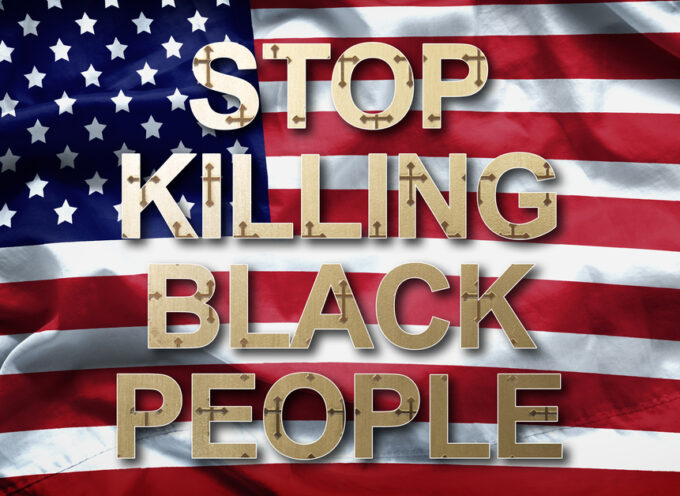Last week, President Trump appointed John Bolton as his third national security adviser in 14 months, continuing a shake-up that underscores the President’s recent about-face on national security. Having campaigned as a non-interventionist, he now has one of the most hawkish security teams in generations.
Who is John Bolton, and will he excel as national security adviser? That depends on how we define “excel” and how Bolton decides to approach his powerful post.
Who is John Bolton?
He is a 69-year-old attorney who is best known for having served in the George W. Bush administration as undersecretary of state for arms control and international security (2001-05) and as Ambassador to the United Nations (2005-06). Mr. Bolton has also served as a Fox News commentator and as a member of several politically conservative think tanks and special interest groups.
Will he excel as national security adviser?
If excellence is measured by possession of a particular set of skills, acquired over a long career, enabling Bolton to be politically effective, the answer is yes.
As Politico’s Eliana Johnson has noted, Mr. Bolton is extraordinarily effective, in that “he knows how to pull bureaucratic levers when convenient and he knows how to work around bureaucratic barriers when not.” Likewise, he is a seasoned television personality who gains the upper hand in public policy disputes and who will easily keep President Trump’s attention in NSC meetings.
But the prerequisites for excellence as a national security adviser are not limited to foreign policy experience and political savvy. Also essential are ethical criteria for deciding whether to go to war and sound judgement in applying those criteria to complex global realities.
Ross Douthat hinted at such criteria recently when he outlined four broad categories of foreign policy conservatives—paleoconservatives, realists, neoconservatives, and hawks—and placed Bolton in the last and most militarily aggressive category.
Yet underlying the various foreign policy camps on the Left and the Right are three, more foundational categories: pacifism, just war, and crusade. A national security adviser’s location in one of these categories foretells much about his tenure.
The first category, pacifism, entails the refusal to participate in wars of any kind, for any reason. Pacifists argue that killing is wrong, regardless of context or circumstance, pointing out that war leads to destruction, death, and often, more war. Christians who are pacifists often point to Jesus’ command, “Do not resist an evildoer” (Matt 5:39).
Pacifism is an idealistic attempt to achieve peace by “laying down the sword.” Yet, the purpose of government is to achieve justice for the various individuals and communities under its purview, and justice sometimes involves using lethal force against aggressors. Against pacifism, Christians take note of historic Christian teaching that it is the duty of kings to uphold justice by means of physical force (Ps 144:1) and the honor of soldiers to put opposing armies to flight (Heb 11:33-34).
The second category, crusade, treats war as the most effective means to depose evil in this world. Crusaders fight under the auspices of a religion or ideology; they conceive of justice in terms of that cause or an ideal rather in terms of life or property. For this reason, crusaders generally give approval to any aggressions necessary to achieve their ideal. Although no American political leaders accept the label “crusader,” many of them—on the Right and the Left—are in fact crusaders.
Crusade is an idealistic attempt to achieve peace by “picking up the sword.” Yet, crusading politicians and military leaders never achieve peace; ironically, they tend to wage war endlessly because the world never meets their ideal. Christians point out that a crusader ethic conflates our present sinful world with the peaceful kingdom God will establish in the future; until that Day, the world will never be rid of evil.
Over and against the idealism of pacifists and crusaders is the realism of the Just War tradition. Just War theory articulates conditions for determining whether or not it is morally right to go to war, and conditions for how a justified war should be fought. A just war must have “just cause,” meaning that it is defending against an unjust aggression. It must be initiated by a competent authority, as a last resort, with reticence, and for the purpose of restoring peace. There must be a reasonable hope of success and the anticipated success must be worth more than the anticipated costs.
Although just war theory was developed by Christian theologians, it has been adopted by many political and military leaders, and by people of every faith and people of none.
In which category is National Security Adviser-delegate John Bolton?
In some aspects of his thinking, Mr. Bolton is a realist who operates in the just war tradition. Over the course of his career, his thought has conformed to just war standards of competent authority, peace restoration, reasonable hope of success, and anticipated returns.
In other aspects of his thought, however, Mr. Bolton lapses into the crusader category. Most prominent is his tendency to violate the “just cause” criterion.
Consider a recent Wall Street Journal article in which Bolton argues that it is “perfectly legitimate” for the United States to attack North Korea now in order to forestall a hypothetical future nuclear strike by the hermit kingdom. Bolton calls such a strike “pre-emptive” and points out that pre-emptive strikes are justified.
The problem, however, is that Mr. Bolton’s hypothetical first strike would not be pre-emptive but preventive.
A pre-emptive strike is one in which the United States possesses reliable intelligence that an opposing nation has already launched a strike (e.g. that a rocket had been launched but had not yet hit our nation) or has made hard and fast plans to launch a strike against our nation (e.g. that a rocket would soon be launched against our nation). A pre-emptive strike is justifiable.
Unlike pre-emptive strikes, however, a preventive strike is one in which the United States goes on the offensive to topple political leaders and regimes it considers evil and who it fears may be aggressors toward us or our allies in the future. Mr. Bolton’s hypothetical first strike is preventive in nature and thus is not justifiable.
In fact, for the past century, the United States has often busied itself punishing other nations for launching preventive strikes in their own regions. In what way is it justifiable, then, for us to launch preventive strikes of our own?
Once our nation begins treating hypothetical future threats as legitimate grounds for going to war, we put our feet on the road toward crusade. “If just cause is stretched to allow preventive wars that pursue notions of ideal safety or social order,” writes just war theorist Daniel Heimbach, “it is no longer a barrier to war but becomes an incentive for war.”
And the last thing we need is to remove the proper barriers, tilting our nation toward a never-ending series of unjust wars and conflicts. One hopes that Mr. Bolton’s argument for a first strike against North Korea was a tactical attempt to drive Kim Jong Un to the negotiating table rather than a strategic declaration of his vision for national security, and that he will be more constrained in his new position of power than he has been in lesser roles.
Subscribe
Never miss a post! Have all new posts delivered straight to your inbox.








I’m glad to see that you have some reservations about John Bolton’s appointment as National Security Adviser.
Here’s my two cents’ worth: I formed my opinion about Bolton back in 2005 during his confirmation hearings for his appointment as our U.N. ambassador. People who had worked with him stated that he was an abrasive, verbally abusive bully. Lynne Finney, who had worked with him at U.S.A.I.D., testified that Bolton had opposed attempts to regulate the sale of infant formula to developing nations, even though studies had shown that the substitution of formula for human breast milk was leading to an increase of infant deaths. When Finney had objected to Bolton’s insistence that she should lobby against such regulation he had–she said–flown into a rage and screamed at her that she was fired, even though he lacked the authority to fire her.
Beyond this, Bolton associated himself with the Project for a New American Century in 1998 in urging a “regime change” war against Iraq. He may thus be seen as one of the architects of our invasion of that country under false premises five years later, resulting in the deaths of half a million Iraqis.
So, I’m no fan of John Bolton. I do recognize that in the rough-and-tumble
nature of “Realpolitik,” there are functions that can be served by the strategic employment of psychopaths, bullies, warmongers, and the like as “pitbulls” to cow the opposition. But I suggest that any such attack dogs should be kept on very short leashes.